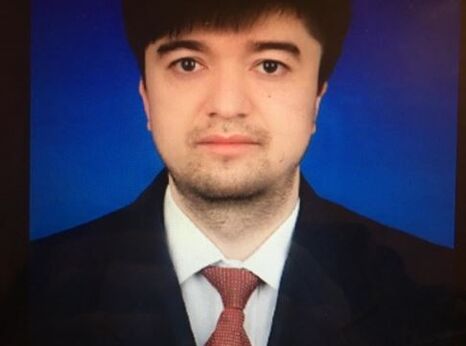Uyghur jailed for nine years in secret trial

Maiwulani Nuermaimaiti was working as a fibre internet technician in Xinjiang before he travelled to Turkey to study Turkish from 2012 to 2014. The purpose was to improve his career prospects, as there were many business opportunities requiring knowledge of Turkish. He returned to Xinjiang in June 2014 and then started working full time as a fibre internet technician. Maiwulani Nuermaimaiti’s mother has health problems and he was the only son looking after his mother in Xinjiang.
According to his sister, who is now living in New Zealand, Maiwulani Nuermaimaiti was taken away in January 2017 and transferred to a “transformation-through-education” facility in Bole City, Xinjiang in June 2017. His sister further learned that he was transferred to a prison in April 2019, she then wrote to the UN Working Group on Enforced and Involuntary Disappearance (UN WGEID) in May 2019. The Chinese authorities replied to the UN WGEID in September 2019 that Maiwulani Nuermaimaiti was sentenced to nine years in prison for “separatist activities” in August 2017. The Chinese embassy responded the same in early August 2020 to a New Zealand journalist following the story.
Xinjiang is one of the most ethnically diverse regions in China. More than half of the region’s population of 22 million people belong to mostly Turkic and predominantly Muslim ethnic groups, including Uyghurs (around 11.3 million), Kazakhs (around 1.6 million) and other populations whose languages, cultures and ways of life vary distinctly from those of the Han who are the majority in “interior” China.
Media reports have illustrated the extent of new draconian security measures implemented since Chen Quanguo came into power as Xinjiang’s Party Secretary in 2016. In October 2016, there were numerous reports that authorities in the region had confiscated Uyghur passports in an attempt to further curtail their freedom of movement. In March 2017, the Xinjiang government enacted the “De-extremification Regulation” that identifies and prohibits a wide range of behaviours labelled “extremist”, such as “spreading extremist thought”, denigrating or refusing to watch public radio and TV programmes, wearing burkas, having an “abnormal” beard, resisting national policies, and publishing, downloading, storing, or reading articles, publications, or audio-visual materials containing “extremist content”. The regulation also set up a “responsibility system” for government cadres for “anti-extremism” work and established annual reviews of their performance.
It is estimated that up to a million Uyghurs, Kazakhs and other predominantly Muslim people have been held in the “transformation-through-education” centres. The Chinese authorities had denied the existence of such facilities until October 2018, when they began describing them as voluntary, free “vocational training” centres. They claim that the objective of this vocational training is to provide people with technical and vocational education to enable them to find jobs and become “useful” citizens. China’s explanation, however, contradicts reports of beatings, food deprivation and solitary confinement that have been collected from former detainees.
China has rejected calls from the international community, including Amnesty, to allow independent experts unrestricted access to Xinjiang. Instead, China has made efforts to silence criticism by inviting delegations from different countries to visit Xinjiang for carefully orchestrated and closely monitored tours.